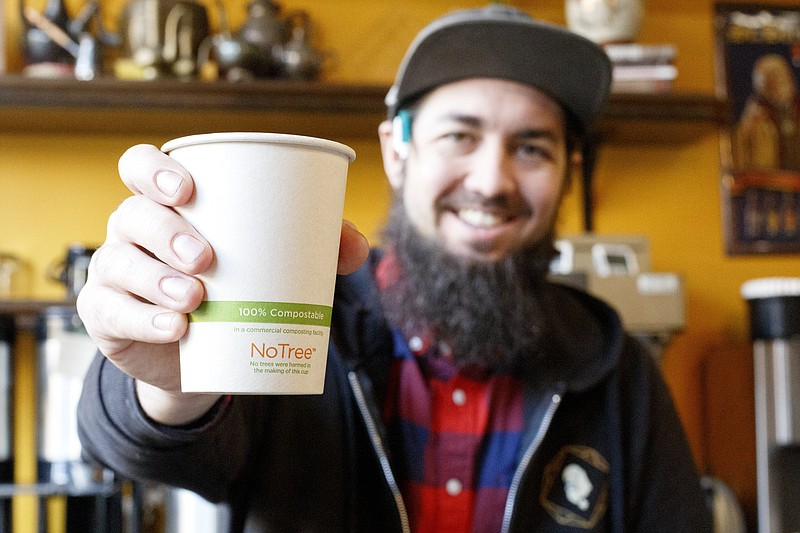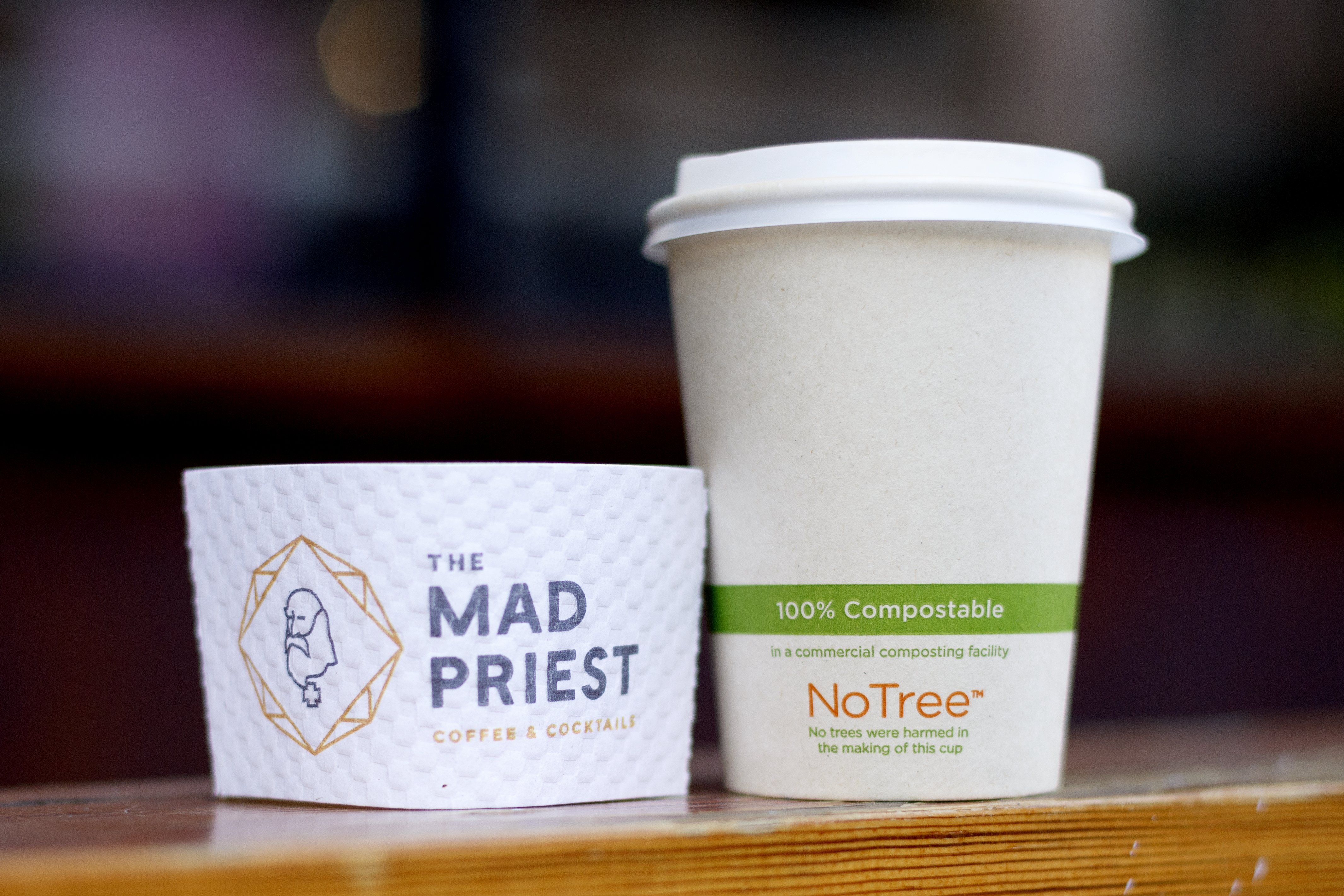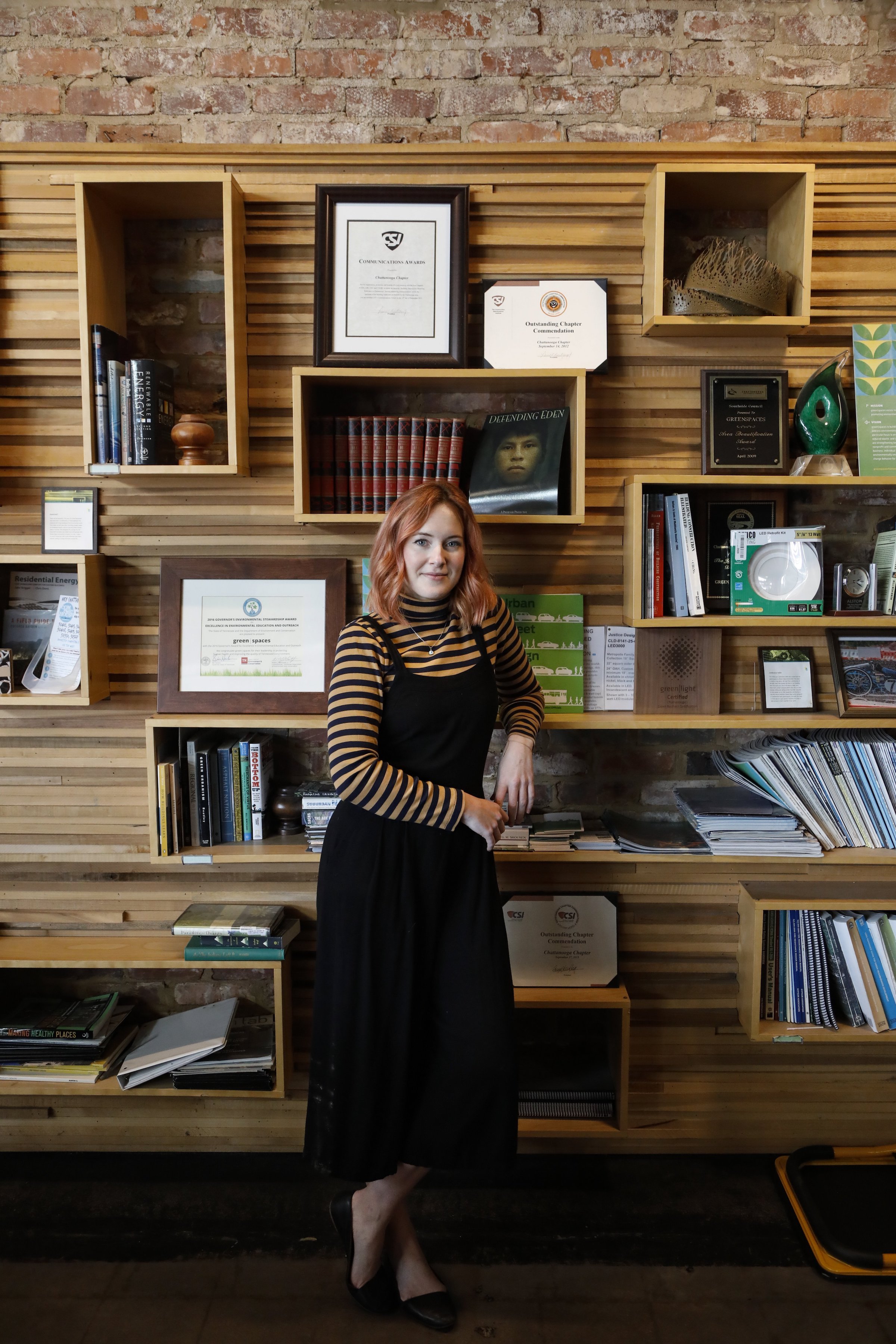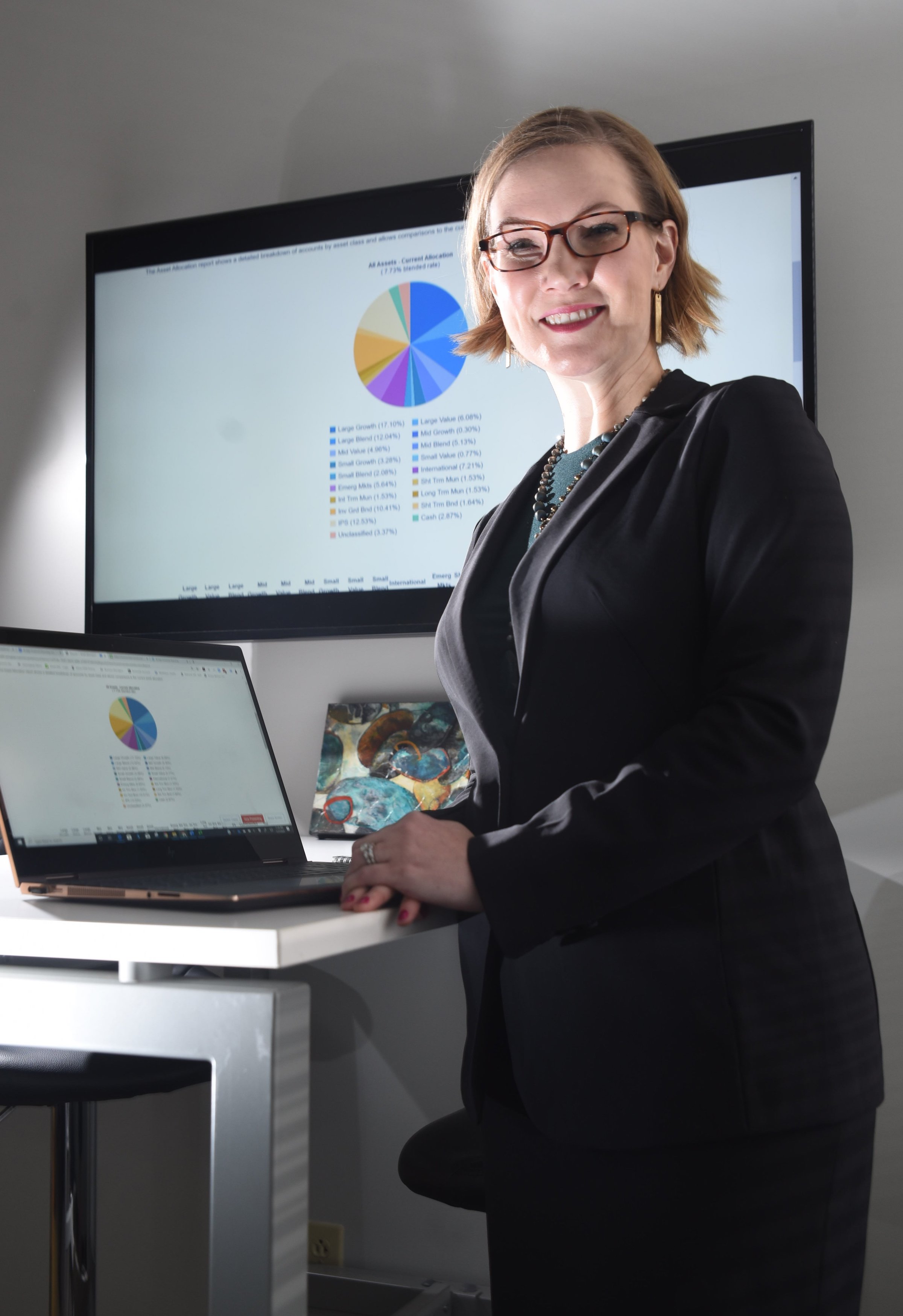Michael Rice figured it was a no-brainer. Owner of the hip, bohemian Mad Priest Coffee and Cocktails downtown, he holds up a clear drinking straw, one that looks like every other clear drinking straw ever made.
"Customers get these straws and they think it's a plastic straw, but it's corn-based," he says. "That way, it is tossed into the pile of restaurant garbage that gets composted."
And almost everything gets composted.
"All of our scraps, food, etc., get composted. The only things that are thrown in the trash are glass bottles from liquor."
Rice's desire to be environmentally friendly is the main reason he signed up for green|light, the program that offers local businesses - restaurants, offices, tourist destinations, car dealers, whatever - official recognition as stewards-in-good-standing when it comes to maintaining and protecting Chattanooga's green riches.
"A number of people are pursuing those things," Rice says. "People understand it more, which is cool."
In the six years since green|light began, more than 52 local businesses have been certified. In the past two years alone, the program has witnessed a 66 percent growth rate, or 34 new businesses.
"They're totally starting to come to us, which is awesome," says Kelley Cureton, director of green|light. "When I started this job two years ago, it was outreach, and now it has totally switched."
Green|light is an offshoot of green|spaces, the local nonprofit focused on sustainability issues when it comes to living, working and building in Chattanooga. Green|light concentrates on the same goals but does so in a more hands-on way.
At interested businesses, green|light reps take an inventory of any already-in-place sustainability methods, checking them off one-by-one from a criteria list. Different businesses have different criteria, Cureton says. Someone who simply rents office space in a building, for instance, wouldn't be expected to take care of outdoor landscaping, she explains.
For any item that doesn't get a check on the list, green|light makes suggestions to not only add the missing green practices, but to make them an integral part of the business - and how to save money doing it. Recertification takes place every two years to make sure the practices are being maintained.
"It's an accountability thing," Rice says. "The certification is a means to an end. They allow us to get there and then they hold us accountable, make sure we're still doing those things."
Green|light's sustainability suggestions include more than the familiar ones - energy, water, weatherization, choosing specific cleaning products. They also venture into such topics as keeping employees happy so they don't quit, showing customers that you are environmentally thoughtful to keep them coming, and supporting diversity by buying supplies from businesses run by minorities or women.
"Social criteria are benefits like paid parental leave, diversity hiring, paying a living wage," Cureton says. "It goes into community support. Are they giving back to the community? Are they giving money? Do they donate time? Do they encourage their employees to do the same?"
Being socially conscious also can lead to more cash in the business' pocket, she adds.
"There are statistics out there that show a company loses $20,000 when there's turnover. The cost of turnover, the cost of attaining talent is a really high cost, so if you keep your employees happy, if you keep them engaged, if you create a diverse workforce and you touch all the community elements and get different voices in the room, it's going to help your business thrive."
When green|light reps first approached her, Jennifer Harper was already practicing some of the familiar environmentally conscious techniques at her business Bridge Financial Planning, but she wasn't quite sure how to expand those into new territories.
"My first response was: How would a company like mine be able to do all the things necessary to be a green|light member?" she says.
It wasn't that difficult. Among the changes were ditching some cleaning products that affect air quality, recycling printer toner cartridges, even buying secondhand furniture for her office.
"Even through small moves, you can make an impact," Harper says. "I'm happy to participate in things like that to help the environment and be more mindful of stewardship issues."
Ruby Falls was one of the first businesses to receive green|light certification and the first tourist attraction to do so, says Hugh Morrow, president and CEO of the essential stop for anyone visiting Chattanooga for fun.
One of its major sustainability steps was to replace the incandescent light bulbs in its cave and waterfall chamber with light-emitting diode (LED) or compact fluorescent bulbs (CFL).
All bulbs - LED or not - burn for about 145 hours a week and, with a lifetime of 600 to 800 hours, the incandescent ones were "a maintenance nightmare," Morrow says. In comparison, LED and CFL bulbs have a lifespan of about 50,000 hours. Money saved. The new bulbs also give a better brand of light in the cave, he says, an essential feature.
"We needed to be extremely careful that we created a natural environment," Morrow says. "We didn't want to turn the cave into bright-white retail establishment."
And though visitors to Ruby Falls may not be checking to see whether the bulbs are LED or toilets are low-flow, keeping an eye on sustainability is still important, Morrow says.
"Our research shows us that 70 percent of the people that attend Ruby Falls expect us to operate in a sustainable way. They don't come to see us because of that, but it raises guest satisfaction in relation to us."
For anyone wanting to improve their environmental footprint, working with an objective partner is critical, he says. Trying to do it yourself may lead to taking sidesteps to avoid the hard stuff, so you need someone with no financial or emotional ties, he says.
"What's very important for businesses is to not self-evaluate what they're doing environmentally," he says.
In the green
To see a list of green|light certified businesses, visit greenspaceschattanooga.org/greenlight



